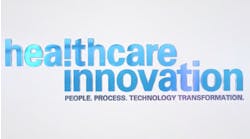The New York City-based Mount Sinai Health System has partnered with a Germany-based IT systems engineering company Hasso Plattner Institute (HPI) on the creation of a new digital health center.
The new institute, which will be called the Hasso Plattner Institute for Digital Health at Mount Sinai, brings together industry leaders with knowledge in an array of areas, from healthcare delivery, health sciences, biomedical and digital engineering, machine learning and artificial intelligence, officials said in a press release.
The idea is to “rapidly develop digital health products with real-time predictive and preventive capabilities that empower patients and healthcare providers, and improve health and health outcomes,” they added. A $15 million donation from the Hasso Plattner Foundation will establish the new institute.
The institute will be co-led by Joel Dudley, Ph.D., associate professor of genetics and genomics at the Icahn School of Medicine at Mount Sinai and director of Mount Sinai's Institute for Next Generation Healthcare, and Erwin P. Bottinger, M.D., professor of digital health-personalized medicine at the Hasso Plattner Institute and Universität Potsdam, Germany, and dead of HPI's Digital Health Center.
The digital health center will conduct patient-engaged and data driven research, according to officials who add that the longer-term goals of the institute include:
- establishing an organizational framework in which researchers at HPI and Mount Sinai collaborate and co-innovate seamlessly across healthcare and digital engineering
- extending funding opportunities for researchers in the U.S. and abroad
- researching and testing prototype digital health solutions for consumers, patients, providers, and health systems in the U.S. and elsewhere
Officials have pointed out that both Mount Sinai and HPI have undertaken significant investments to create the infrastructure and resources needed for the new Institute. For example, “Mount Sinai's interdisciplinary expertise in genomics, big data, supercomputing, and bioinformatics; large and diverse patient population; and an ability to translate from the lab directly to the clinic, provides a foundation for the institute,” according to officials.
And, the Institute for Next Generation Healthcare (INGH), under the leadership of Dr. Dudley, has developed an integrated translational biomedical research model using advances in omics, clinical medicine, digital health, and artificial intelligence. For instance, the BioMe BioBank Program housed at the Charles Bronfman Institute for Personalized Medicine at Icahn School of Medicine at Mount Sinai is enabling researchers to more rapidly and efficiently conduct genetic, epidemiologic, molecular, and genomic studies on large collections of research specimens linked with electronic health records (EHRs), officials said.
Meanwhile, at the Hasso Plattner Institute, recently established programs like the HPI Digital Health Center (DHC) aim to bring together individuals from health sciences, human sciences, data sciences, digital engineering, and society with a shared goal to improve health and wellbeing. The Center's three divisions—Connected Health, Machine Learning in Human Health and Personalized Medicine—are pursuing novel methods in artificial intelligence, sensor technologies and mobile computing platforms to collect and analyze patient-generated health data, officials attested.
"This endeavor will usher in a new era of digital health at Mount Sinai that advances the field of precision medicine," Dennis S. Charney, M.D., Anne and Joel Ehrenkranz Dean, Icahn School of Medicine at Mount Sinai, and president for academic affairs, Mount Sinai Health System, said in a statement. "By leveraging our shared knowledge and academic excellence, Mount Sinai and HPI are positioned to find solutions that will revolutionize healthcare and science, and improve health nationally and globally."

